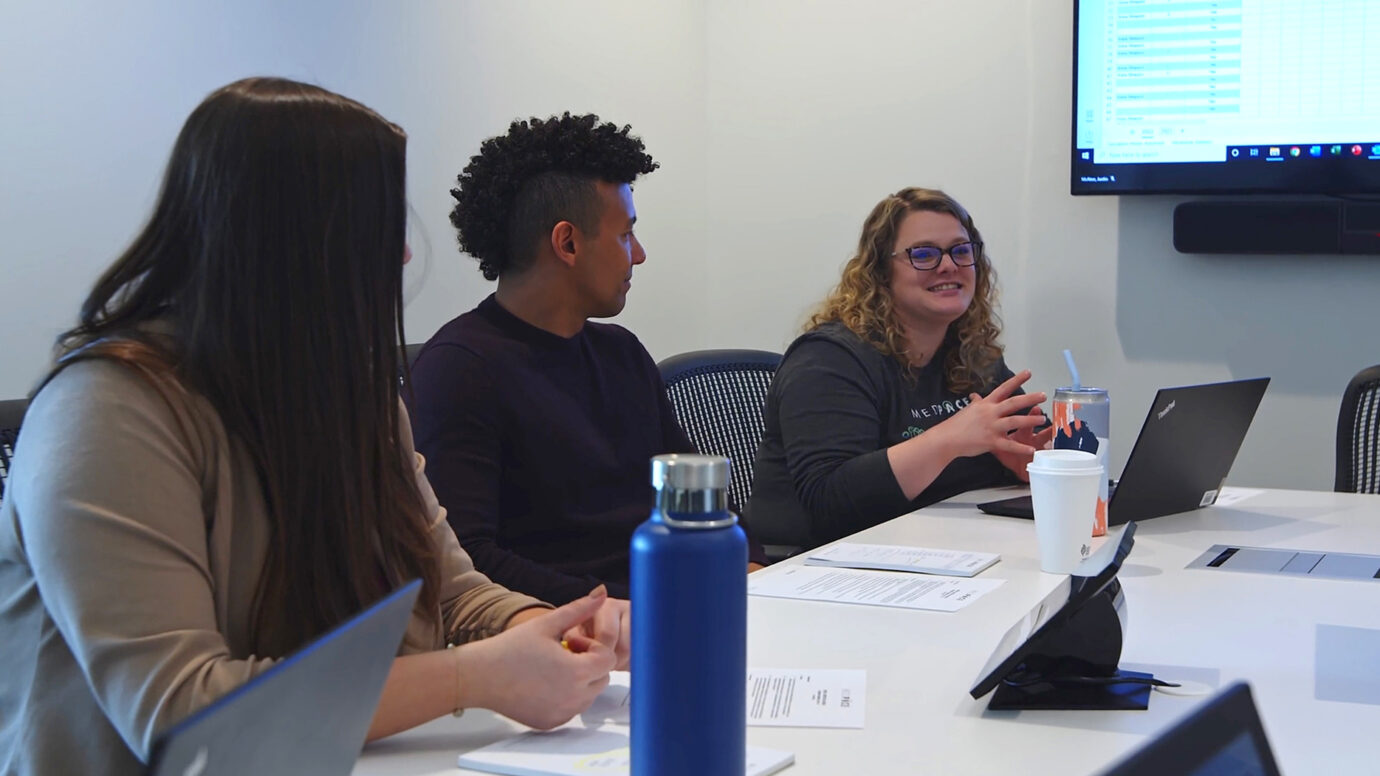
In the face of extreme burnout and fear for her loved ones, Senior Project Coordinator Maggie Brown left bedside clinical practice following the height of the COVID-19 pandemic. Maggie parted with her decade-long career in hopes of a better work-life balance while keeping her passion for medicine close by.
As a child, Maggie fostered a Doogie Howser, MD obsession which inspired her to work in medicine. Little did she know, the sitcom would stay with her throughout her life and launch her into a ten-year tenure as a Physician Assistant.
After she earned her Master in Public Health (MPH) and Master of Science (MSHS), she was certified as a Physician Assistant (PA-C). Maggie’s Dr. Howser-inspired dreams became a reality. She entered the heart of bedside clinical practice, and for five years, Maggie worked in orthopedics and pediatric neurosurgery as a surgical PA while also performing consults and beside procedures. For the following five years, Maggie was a PA in emergency medicine caring for patients from critically ill to those needing routine laceration repairs. She was excited to have both items checked off her professional wish list: flexibility between specialties and close patient contact.
Then COVID-19 hit.
“I was petrified for myself but more so for my family and friends as I felt as though I was a risk to be around them,” Maggie says. For ten months, she was among the frontline workers waiting for a vaccine. For 12 hours per shift, Maggie and her team would shield themselves with an N95 mask, a face shield, hair covers, and disposable gowns. “I changed scrubs before and after my shift and scrubbed my hair and skin with cleaning products after each shift,” Maggie describes.
For most of her career, Maggie loved medicine. But as an ER healthcare provider, she was faced with critical patients around every corner. “Medicine is a challenging career path, but the pandemic made it nearly impossible to enjoy,” she explains. “…I was extremely burned out. I found myself losing pleasure in practicing medicine and knew I needed to find an alternative way to ‘practice’ medicine.” Determined to stoke this passion, Maggie began to look for avenues outside of traditional clinical medicine.
As she launched her quest for a more sustainable career, Maggie connected with a few clinical friends who performed some consulting work at Medpace. After they learned of her newfound career goals, they suggested she consider clinical research. Maggie had previously only crossed paths with clinical research twice before in her professional career, but she hadn’t considered clinical research as a potential opportunity until this point. She heeded their advice.
“I wanted a new path that allowed me to concentrate on my own personal well-being…while still finding meaning in my career,” Maggie explains from her role as a Sr. Project Coordinator at Medpace. She finds working in clinical research the “combination of my dreams.” Maggie still uses a large portion of her previous experience as a PA, but now she incorporates her MPH as well. Maggie serves as an information liaison, or “communication hub,” for teams across departments within Medpace to ensure research studies are conducted within Medpace standards. While she may not have direct correspondence with patients, Maggie is still able to contribute to patient education and healthcare communication for studies.
In addition to Maggie’s new opportunity to practice medicine differently than she was used to, she also enjoys a newfound work-life balance. In her free time, Maggie is going back to school. In May, she reentered the classroom and is officially a new student at the University of Cincinnati. Maggie will soon add a graduate certificate in Global Regulatory Affairs in Drug Development to her academic repertoire.
“Medpace granted me an opportunity I never thought possible – the combination of clinical medicine with evidence-based research. It was the combination of my dreams. The reality is better than I ever imagined.”
While Maggie valued her time as a PA, she is excited to continue this course in clinical research. She never believed it possible, but she discovered how clinical research creates an approach where one can “combine your years of training plus your clinical expertise plus your love of science plus your desire to help the patients.”
Maggie wants those who are entering into or are already in medical fields to know their options because “the alternatives are rarely discussed or emphasized.” Bedside clinical practice might not be the right track for everyone, or perhaps it is, but somewhere along the way, you may need a change. Through this necessary transformation in her professional career, Maggie has been able to maintain her passion for medicine while checking items off her updated professional wish list.

Medpace careers